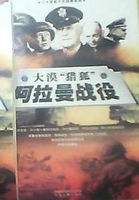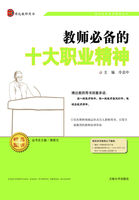Say passes upon the bounties which foreign countries sometimesoffer in order to facilitate exportation; he maintains that 'theseare presents made to our nation.' Now if we suppose that Franceconsiders a protective duty of twenty-five per cent sufficient forher not vet perfectly developed manufactures, while England were togrant a bounty on exportation of thirty per cent, what would be theconsequence of the 'present' which in this manner the English wouldmake to the French? The French consumers would obtain for a fewyears the manufactured articles which they needed much cheaper thanhitherto, but the French manufactories would be ruined, andmillions of men be reduced to beggary or obliged to emigrate, or todevote themselves to agriculture for employment.Under the mostfavourable circumstances, the present consumers and customers ofthe French agriculturists would be converted into competitors withthe latter, agricultural production would be increased, and theconsumption lowered.The necessary consequence would be diminutionin value of the products, decline in the value of property,national poverty and national weakness in France.The English'present' in mere value would be dearly paid for in loss of power;it would seem like the present which the Sultan is wont to make tohis pashas by sending them valuable silken cords.
Since the time when the Trojans were 'presented' by the Greekswith a wooden horse, the acceptance of 'presents' from othernations has become for the nation which receives them a veryquestionable transaction.The English have given the Continentpresents of immense value in the form of subsidies, but theContinental nations have paid for them dearly by the loss of power.
These subsidies acted like a bounty on exportation in favour of theEnglish, and were detrimental to the German manufactories.IfEngland bound herself to-day to supply the Germans gratuitously foryears with all they required in manufactured articles, we could notrecommend them to accept such an offer.If the English are enabledthrough new inventions to produce linen forty per cent.cheaperthan the Germans can by using the old process, and if in the use oftheir new process they merely obtain a start of a few years overthe Germans, in such a case, were it not for protective duties, oneof the most important and oldest branches of Germany's industrywill be ruined.It will be as if a limb of the body of the Germannation had been lost.And who would be consoled for the loss of anarm by knowing that he had nevertheless bought his shirts forty percent cheaper?
If the English very often find occasion to offer presents toforeign nations, very different are the forms in which this isdone; it is not unfrequently done against their will; always doesit behove foreign nations well to consider whether or not thepresent should be accepted.Through their position as themanufacturing and commercial monopolists of the world, theirmanufactories from time to time fall into the state which they call'glut,' and which arises from what they call 'overtrading.' At suchperiods everybody throws his stock of goods into the steamers.















